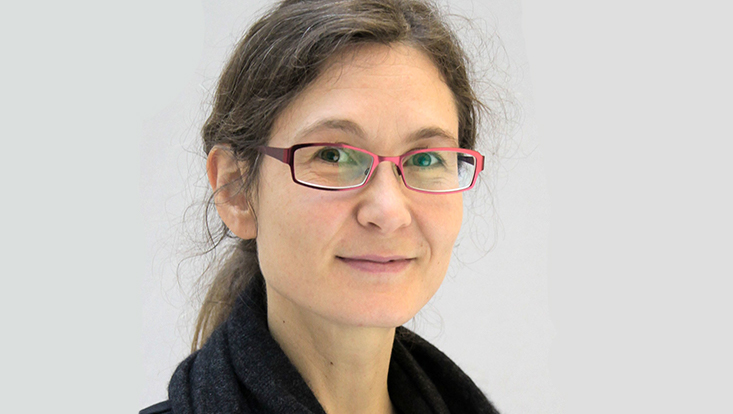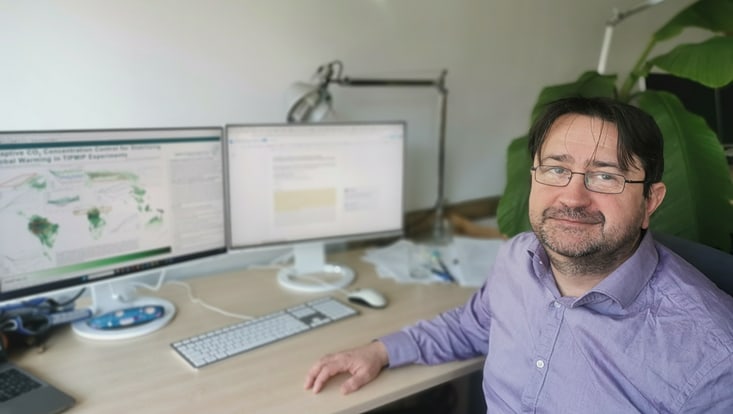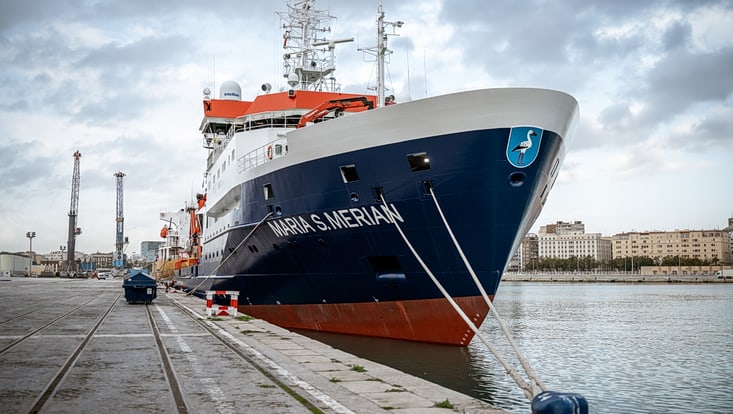Welcome AboardClimate Extremes: A Timely Professorship
3 September 2021, by Ute Kreis

Photo: CICERO
Jana Sillmann has taken up her position as the new professor of “climate statistics and climate extremes” – at a time when heavy rain, heat waves and forest fires have, more than ever before, raised people’s awareness of the consequences of climate change. In the Cluster of Excellence CLICCS, the geo-ecologist is investigating what this means for us, and how we can deal with the risks.
Ms. Sillmann, geo-ecology is an “interdisciplinary environmental science.” What does this involve?
In my case, it means that I don’t look at climate statistics in isolation – for example the conditions under which extreme events occur, how pronounced they are, and how frequent. I also examine: How will our health be affected if we have more very hot days in the future? How do prolonged droughts affect agriculture? How does flooding influence where we live and work, and what are the risks for the things we own and value?
In other words, you are a physician, agricultural expert and an expert on flood protection all rolled into one?
Not exactly, but I do work closely with all these people. In my working group at the Center for International Climate Research (CICERO) in Oslo, where I worked before, the team included colleagues from the environmental sciences, economics, statistics and climate modeling. We consciously worked in an interdisciplinary manner – just like here in CLICCS.
While we’re on the topic: You completed your PhD in Hamburg and spent several years in Canada, and then in Norway. Now you’ve returned here. How did that come about?
During my doctorate at the Max Planck Institute for Meteorology, here in Hamburg, I was already interested in climate extremes, mainly in the context of the natural sciences. I analyzed datasets and filtered out extreme values. Even at the time, I knew that I wanted to pursue socially relevant research – basic research, but with a view to applications. My research should be based on what information is needed, for example to minimize risks or to adapt to changes. After all, we’re in the midst of climate change.
Is that the common theme running through – the holistic view?
Yes, that’s what excites me here in Hamburg: the close collaboration between the natural and the social sciences, and the joint search for “plausible climate futures.” Climate change is a complex problem with consequences for all areas of our lives. Anyone looking for solutions, can’t just consider the individual phenomena in isolation, otherwise new problems will be created. I’ll build my team here in Hamburg bearing these points in mind.
It’s fitting that you were involved in the latest IPCC Assessment Report, which was published recently. Is that correct?
Yes, chapter twelve covers the regional impacts of climate change with a focus on information for risk assessment, and I was one of the lead authors. Just my topic!
Is there anything that you’re looking forward to again here in Hamburg?
The diversity of people, the academic excellence, and the wide range of organic and fair trade or regional food.
Contact:
Prof. Dr. Jana Sillmann
Universität Hamburg
Exzellenzcluster CLICCS
jana.sillmann"AT"uni-hamburg.de


